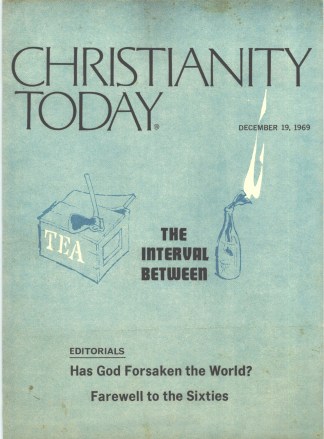Like an aging automobile, the National Council of Churches seems destined for the junk heap. It costs more and more to run. It does not have the power it used to have. It seems to need more and more repairs, especially after recent collisions with black militants. Besides, it has come to look out of date.
Not surprisingly, therefore, NCC ecumenical leaders came to Detroit for their triennial General Assembly this month with fancier models in mind. Although as organizations go the nineteen-year-old National Council is still young, leading churchmen have been coming to regard it as more of a liability than an asset. Some want it completely restructured. Dr. R. H. Edwin Espy, in his report as NCC general secretary, has gone a step further and called for creation of an entirely new ecumenical vehicle (see News, p. 30).
Dr. Espy told assembly delegates in the Motor City that he would like to see the present organization supplanted by one considerably more inclusive. The Roman Catholic Church is the prime prospect. Evangelically oriented denominations will also be sought. The projected framework for the new organization allows for degrees of membership that would take into account the anxieties conservative communions have voiced about the NCC.
The assembly responded to Dr. Espy by calling for a national consultation in the interests of “a wider Christian fellowship.” The General Board of the NCC will be expected to come up with specific recommendations within the next three years.
If new options like these become a reality in the days ahead, evangelicals will have to decide whether to stay out or go in. Can evangelicals sit down with churchmen of widely disparate theological persuasions without sacrificing biblical integrity? Are there limited mutual goals that would make such dialogue worthwhile? Will the new umbrella be simply a new name for an old and shopworn organization? Can such an inclusive structure allow for evangelical priorities and can evangelicals be elected to important ecclesiastical positions in which their influence can be determinative? Indeed, we might also ask whether the counsel of evangelicals will be sought if and as the plan takes shape. We invite our readers—particularly members of the younger generation of evangelicals, who must live with whatever decisions are made—to reflect on these and related questions. Options like this come infrequently, and the choices made may determine the direction of the Church for a generation or more. Obviously, proposals will have to be described in detail; final decisions can be made only in light of all the facts, and without succumbing to sophistry and emotional appeals.










